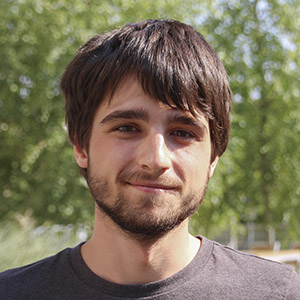Martin Federbusch

MD candidate
Stephanstraße 1A
04103 Leipzig
Germany
Martin Federbusch is studying medicine. His graduation is planned for December 2015. In February 2012 he found his way to the O’Brain Project through the funding programme MD Pro 1of the Integrated Research and Treatment Center (IFB) AdiposityDiseases Leipzig. His research focuses at genetic causes of obesity: he is associating obesity SNPs (point mutations, e. g. in the genes FTO, MC4R, BDNF) with altered brain structure (VBM on T1-weighted MRI images). Furthermore he analyse the association of behavioral measures and measures of obesity like the body mass index (BMI). To assess also different conditions, under which the BMI can be explained, he use multiple regression with models of mediation and moderation.
Publications
Rohde, K., Federbusch, M., Horstmann, A., Keller, M., Villringer, A., Stumvoll, M., Tönjes, A., Kovacs, P., & Böttcher,
Y. (2015). Genetic variants in AKR1B10 associate with human eating behavior.
BMC GENETICS, 16: 31. doi:10.1186/s12863-015‑0189‑9.
[Item]
[File 1]
Dietrich, A., Federbusch, M., Grellmann, C., Villringer, A., & Horstmann, A. (2014).
Body weight status, eating behavior, sensitivity to reward/punishment, and gender: Relationships and interdependencies. Frontiers in Psychology, 5: 1073. doi:10.3389/fpsyg.2014.01073.
[Item]
[File 1]
Dietrich, A., Federbusch, M., Grellmann, C., Villringer, A., & Horstmann, A. (2014).
Body weight status, eating behavior, sensitivity to reward/punishment, and gender: relationships and
interdependencies. Poster presented at 30th Annual Meeting of the German Society for Obesity, Leipzig, Germany.
[Item]
[File 1]

